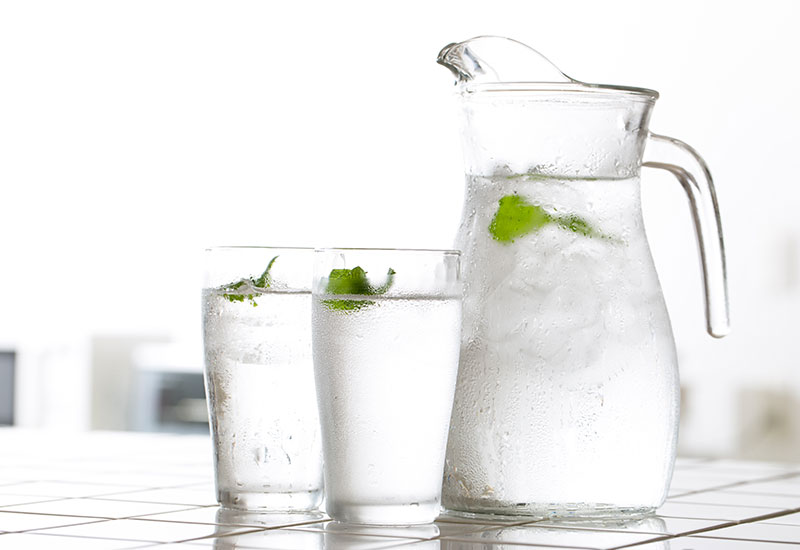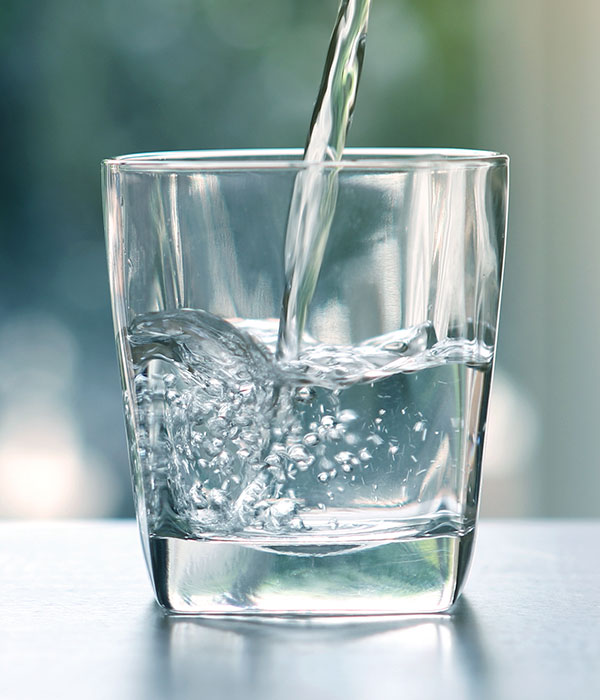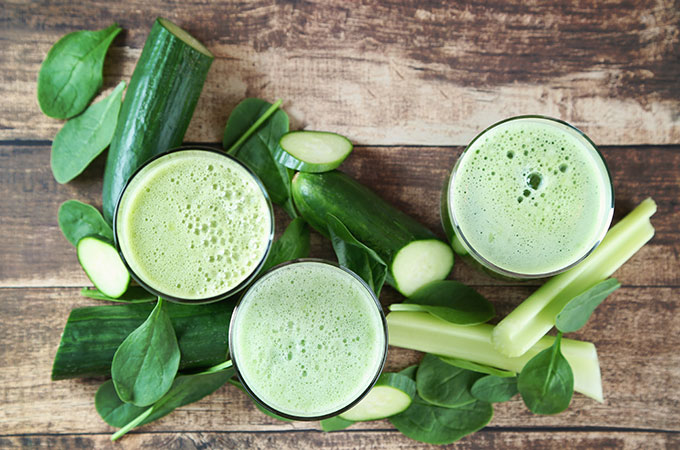How to Hydrate with More than Water

This post was written by Heinen’s partner, Halle Snavely.
A few years ago, I saw an Instagram post by Dr. Zach Bush MD where he explained that 50% of the aging process is due to dehydration. That really got my attention. The post was part of a hydration series where he deconstructed how the process of hydration works, ways to stay hydrated beyond just drinking water and clearing up the most common myths around hydration.
This series blew my mind. I’ve always been good about drinking a ton of water. But some days, it just doesn’t do the trick. It feels like everything I drink goes right through me and I end up with dry mouth, chapped lips and low energy levels. It’s frustrating when you think you’re doing everything right, but don’t get the results you want. I’ve always been baffled by hydration, but I was so relieved to find this report that broke it down so clearly.

According to Dr. Bush, hydration is the cornerstone for good health and affects pretty much every bodily function from digestion, to your immune system, skin health and so much more. While you may not think of it in this way, water itself is an antioxidant. When we have an excess of oxidative compounds in our immune system, bloodstream and cells, it leads to chronic inflammation. So, your level of hydration is directly linked to the level of inflammation in your body. But according to this report, dehydration also impacts your mitochondrial function as well, which is directly linked to your energy levels.
After reading the entire report, I looked at hydration in a completely different way. It helped me implement game-changing hydration tactics into my daily routine. Here are a few highlights.
Busting Hydration Myths
- True hydration isn’t only a matter of drinking enough water; rather, it’s about water making its way into our cells. About two-thirds of our bodies are made of water, and about 66-70% of that water lives inside our cells and lymph system. As we age, our bodies have a harder time moving water from the bloodstream to our cells. That said, if our bodies were able to maintain their ability to stay hydrated throughout our lifetimes, meaning the water we drink lands inside of our cells, we would significantly slow the aging process, and potentially even reverse it.
- The color of your urine isn’t necessarily a clear indicator of how hydrated you are. If your urine is clear, that is a sign that water has moved from your gut to your bloodstream and through your kidneys. But that still doesn’t mean that the water has entered your cells. You’re really looking for urine with a yellow tint and good volume. But like so many other aspects of our health, good hydration requires a healthy gut that is fortified with healthy boundaries in the capillaries and each cell membrane.
How to Properly Hydrate
- Take Electrolytes. According to Dr. Bush, true hydration is “about getting living water that is supported by electrolytes” into your cells. There are numerous ways to take electrolytes. First is by taking supplements.
Heinen’s carries electrolytes from Nuun for specific functions like exercise, immunity, energy and wellness. Other ways to take in electrolytes are by taking Epsom salt baths to absorb magnesium through the skin, adding a pinch of pink salt to your water, drinking beverages like coconut water or kombucha that naturally contain electrolytes and spending time in nature (especially barefoot!) to expose your microbiome to a diverse array of microbes. - Eat Enough Healthy Fat. Fats help you retain water, but not in a bad way. Fats help the stomach release water slowly, allowing the body to hydrate over a longer duration. Good sources of healthy fats include nuts, seeds, olives, avocado, coconut and plenty more.
- Eat Foods that are Rich in Fiber, Water and Electrolytes. We tend to focus too much on drinking water for hydration, but you can satisfy your water needs by eating the right foods as well. Many foods that have high water content also have the added benefit of being packed with electrolytes. These foods include celery, cucumber, watermelon, radishes, tomatoes, cantaloupe, strawberries, spinach, zucchini, pineapple, orange and plenty of other fruits and vegetables.

While drinking plenty of water is certainly a top priority, adding in a few of these tips to your daily routine will help you up your hydration game. Your body will thank you!


